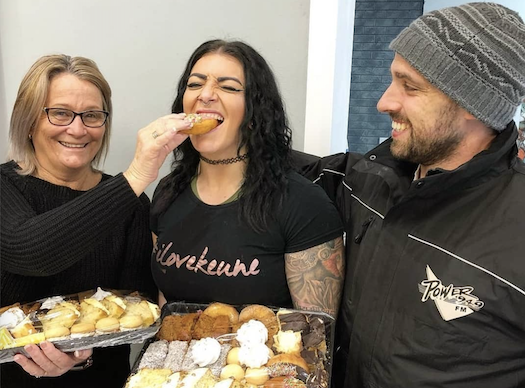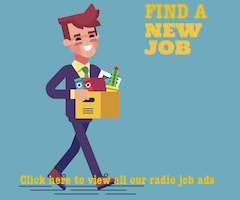Peter Saxon asks for directions
The European Broadcast Union’s (ABU) Ezra Eeman recently wrote about the Great Unbundling of Radio.
He says, “If Radio 1.0 is live, linear terrestrial radio with all its magic: connecting people, ideas and music in a schedule that guides listeners across the day then Radio 2.0 can be considered the moment when users got control through interactivity and on-demand content. Very much anything that happened after the invention of the iPod.”
Radio’s unbundling before our ears a great chunks of its content have been taken over by other platforms. Spotify, and similar streaming services, for example, have eaten away at radio’s credentials as the music medium. Podcasts, even while adding value to radio, have become a whole new subsection of the “audio” spectrum in the way that SUVs have taken a sizeable chunk of the car market. And now, even newer offerings like Clubhouse are making a splash in what was once thought to be the exclusive domain of talk radio.
Over the past 25 years, no established business or business model has been inoculated against change.
We’ve already witnessed the unbundling of television. Appointment programming has been relegated to history. If the video recorder turned the first sod, Foxtel’s IQ box brought in teams of labourers with shovels only to see Netflix, Stan and Prime bring in the heavy machinery to make movies and TV series all but redundant on linear TV.
Both FTA and Foxtel operate on expensive platforms that are government licensed, which till recently, rendered them immune to competition. Suddenly, they found themselves facing aggressive competitors that simply hooked up to the existing infrastructure and are able sell their wares cheaply without set up costs or lock-in contracts.
To compete with the newcomers, the incumbents quickly hooked up to the internet with their own on-demand content but have lost the majority of audiences for movies, pre-recorded TV drama and similar series. Instead, they’ve been forced to pivot to mostly live or live-ish content such as sport, news and reality TV – anything that’s perishable, best consumed whilst fresh.
What then of radio? What must it do to stay relevant going forward? Who better to ask than radio futurologist, James Cridland?

“I look at this through the filter of the definition of what radio is. A lot of people have a definition of radio that starts with an FM or an AM transmitter. Or a DAB+ transmitter. And I’m not sure that that is what the definition of radio is. But if we continue to believe that radio is just FM or AM, then we will die.
“My definition of radio is a human connection with a shared experience. And the reason why that is important is that that should enable us to understand what the benefit is in terms of radio, what our unique selling point is.
25 years ago, when I was doing Afternoon Drive, our unique selling point used to be, doing traffic reports, playing new music, telling people what was going on with the big stars and stuff like that.
“Now you have a look at what we’ve got access to. New music is available for anybody on Spotify. So, there’s no point in that. Traffic news is available to anybody in a much better format by using something like Wayz or Google Maps – there’s really no point to that in terms of radio. So, we come back to the fundamental focus of radio being a shared experience with a human connection.
“When you have a look at what happened in lock down in Melbourne last year, what you saw very clearly on the GfK numbers was that people turned to spoken word radio. People turned to human beings talking to you. The music intensive radio stations all fell back while the speech stations all had a good and powerful increases. And that was very different when you looked at, for example, Brisbane which didn’t have a lock down, there was no change there in terms of how audiences moved.
“So, it’s very clear that audiences like that human connection and that shared experience.
“If I was programming a radio station – and thank heavens, I’m not. But if I was – that’s the thing that I would focus on: making sure that people know that they are part of a community, says James Cridland”

Peter Saxon
Subscribe to the radioinfo podcast on these platforms: Acast, Apple iTunes Podcasts, Podtail, Spotify, Google Podcasts, TuneIn, or wherever you get your podcasts.





Great article Peter. James Cridland has hit the nail on the head when he says localising content is the key. It always has been which, unfortunately, networking has taken away.
".....newer offerings like Clubhouse are making a splash in what was once thought to be the exclusive domain of talk radio...."
"Clubhouse" is an app available only for iPhones with Android versions on the way.
An analogy with 1990s technology is that Clubhouse is a public party line with a maximum of 5000 users per chatroom. A moderator commences a 'forum' and users enter the chatroom by invitation-only.
As far as topics are concerned, there is a plethora topics such as health, business and politics.
An invited user may wish to talk-back by tapping on the speak button.
But like other social media, the quality of the information may well be dubious through un-referenced sources, regurgitated hearsay and full of conspiracy theories. Clubhouse may well have its share of jerks and abusers.
On the other hand, the quality of information may well be evidence-based.
That is the quality of the chatroom is as good as the moderator and invited users.
It follows that Clubhouse could enhance a broadcaster's programs in the same way as a broadcaster has its own Twitter and Facebook account.
Unfortunately the Clubhouse's chatroom session is not stored for posterity only to the extent that Clubhouse records the chatroom session for the purpose of a user making a complaint.
This is unlike the broadcaster's requirement to keep an audio log of its on air broadcasts for six weeks.
If Clubhouse has the facility to record a chatroom session, the quality of the audio transmission and presentation style of the moderator has to be taken into account.
Thus if a Clubhouse session can be made recordable, it may well enhance a broadcaster's spoken word sessions.
Given the ability of Elon Musk being a guest and speaker in a chatroom, it would not be too difficult for the chatroom moderator to organize guests to speak at a session.
I don't see why Clubhouse could incorporate instant messaging for the session.
Thank you
Anthony of interesting applications of things, Belfield